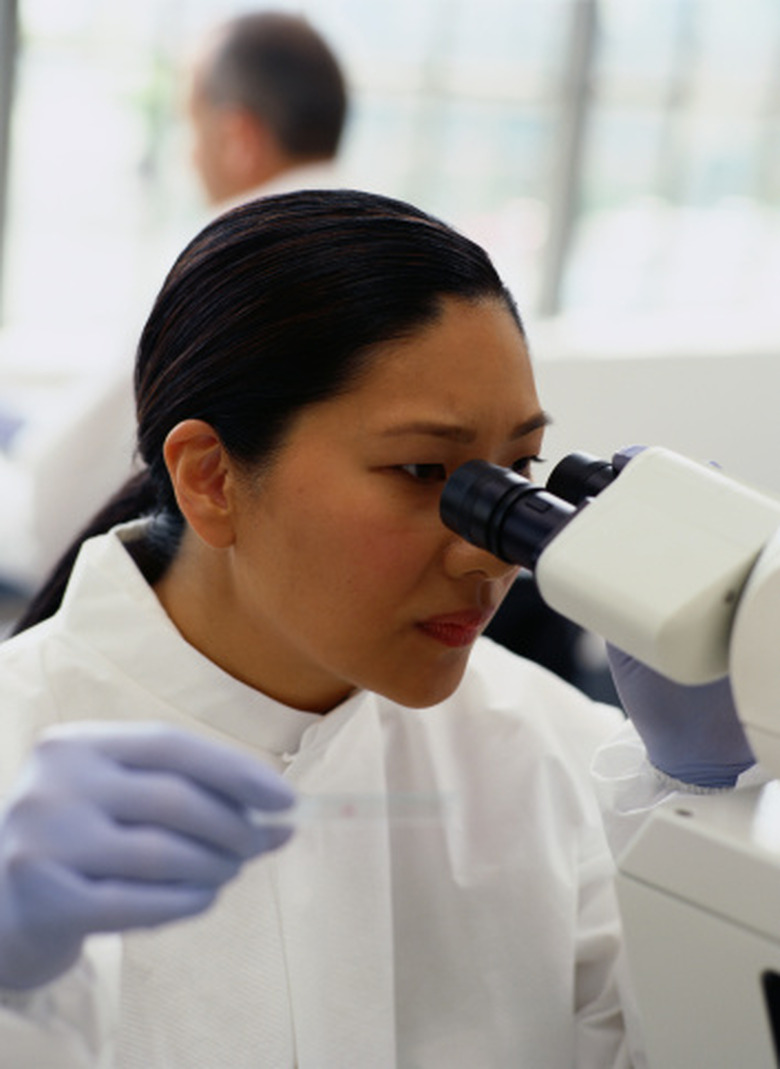What Is A Testable Prediction?
In science, an educated guess about the cause of a natural phenomenon is called a hypothesis. It's essential that hypotheses be testable and falsifiable, meaning they can be tested and different results will ensue depending on whether the hypothesis is true or false. In other words, a hypothesis should make predictions that will hold true if the hypothesis itself is true. A testable prediction can be verified through experiment.
Hypothesis
Hypothesis
If you have an explanation for a natural phenomenon — in other words, a hypothesis — you can use it to make predictions. Suppose you notice, for example, that more salt dissolves in hot water than in cold water. You could hypothesize that perhaps all compounds are more soluble in hot solvents than in cold solvents. Based on this hypothesis, you would predict that as the temperature of the solvent increases, so, too, does the amount of solute you can dissolve.
Testing Predictions
Testing Predictions
All predictions should be testable, meaning it should be possible to design an experiment that would verify or invalidate the prediction. With the solvent, for example, you could test your prediction by dissolving different compounds in water at different temperatures and measuring the solubility. You would soon find that some substances actually become less soluble with increasing temperature. Since the prediction made by your hypothesis is false, you would realize your hypothesis is flawed and try to find a new one that could account for the facts.
Untestable Predictions
Untestable Predictions
Untestable predictions and hypotheses lie outside the realm of science. Suppose someone told you, for example, that lightning storms are caused by angry ghosts. If this is true, you would predict that when ghosts are angry, there will be more lightning storms. It's not a valid scientific hypothesis, however, because neither the proposed explanation nor its predictions are testable. There is no possible experiment you can design to determine whether ghosts are angry and whether their wrath is correlated with the incidence of thunderstorms, so the hypothesis and its predictions are completely untestable.
Proof
Proof
There's a common misconception that scientists "prove" a hypothesis is true. In reality, no number of experiments can ever prove a hypothesis is true beyond all doubt; they can only show it's consistent with the evidence. As evidence accumulates and competing explanations are disproven, of course, it becomes more and more reasonable to believe the hypothesis is the best explanation. At this point scientists will refer to it as a theory (for example, the theory of relativity). It takes only a single experiment to disprove a theory, but a thousand experiments cannot prove it true. Nonetheless, if a theory and its predictions have been repeatedly verified by experiment, it will be generally accepted, unless there is sufficient evidence to show it should be discarded in favor of a new theory.
References
- University of Rochester: Introduction to the Scientific Method
- "Biology"; Neil A. Campbell, et al.; 2008
Cite This Article
MLA
Brennan, John. "What Is A Testable Prediction?" sciencing.com, https://www.sciencing.com/testable-prediction-8646215/. 24 April 2017.
APA
Brennan, John. (2017, April 24). What Is A Testable Prediction?. sciencing.com. Retrieved from https://www.sciencing.com/testable-prediction-8646215/
Chicago
Brennan, John. What Is A Testable Prediction? last modified March 24, 2022. https://www.sciencing.com/testable-prediction-8646215/
